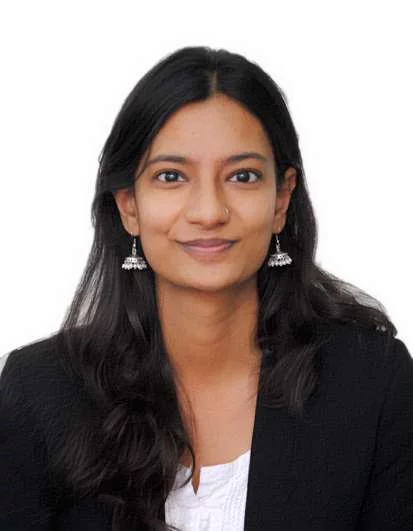Lawyers and Advocates are the terms interchangeably used for legal professionals in India. There is no impediment to using these terms interchangeably in common usage.
Lawyers in India:
In dictionary terms, a person who practices or studies law. In India, lawyers are basically graduates who have qualified in law school and have not enrolled with the Bar Council of India.
Advocates in India:
In the Indian context, an advocate is a professional who has completed the law degree and qualified for the licensure examination conducted by the All India Bar Council. Section 2(1) (a) of Advocates Act 1961 defines “Advocate”. As per the Act, “Advocate” means an advocate entered in any roll under the provision of the Advocate Act 1961.
Senior Advocates in India:
With his assent, an advocate having 10 years of practice may be designated as a senior advocate if the Supreme Court or a High Court believes that he is deserving of such distinction due to his ability, position at the Bar, or unique knowledge or expertise in law. Full Court of the High Courts or Supreme Court decides the designation of an advocate as Senior Advocate. Under ordinary circumstances, the minimum age to become a senior advocate is 45 years.
Justice Rohington F. Nariman became a senior advocate at the age of 37 years while he was practicing as an advocate. Chief Justice Venkatachaliah, as he then was, amended rules to designate Sh. Rohington Nariman as a senior advocate.
Designations of Advocates & Lawyers in England
For the legal practice of English law in England and Wales, a qualification as a barrister or solicitor is required as a mandate. This is, however, solely essential for the practicing English law in England.
Solicitors:
A solicitor is the lawyer who provides legal advice, drafts legal documents or lawsuits, and represents clients in lower courts of law. These rights to the audience are not exclusive privileges with the solicitors; the barristers share them with them. Unlike barristers, however, the clients can directly instruct solicitors.
Barristers:
The professional associations for Barristers in England and Wales are called the Inns of Court in London and there is a total of four Inns. Barristers are lawyers who are admitted to the Bar by one of England and Wales’ four Inns of Court: the Inner Temple, the Middle Temple, Lincoln’s Inn, and Gray’s Inn. In England and Wales, barristers have traditionally had exclusive privileges of the audience (to appear and conduct a hearing on the client’s behalf) before superior courts. They couldn’t be hired by a client; instead, they had to be hired by solicitors.
Practising and non-practising Barristers:
Being called to the Bar and becoming a barrister does not automatically grant you the right to appear in court. The title of Barrister-at-Law is merely an academic title bestowed by the Inns of Court. In England and Wales, obtaining the rights of audience before the courts requires completing a year of pupillage in a barrister’s chambers. It’s not easy to get a pupillage as only approximately 40% of barristers goes on to become pupils. Barristers who are unable to finish pupillage may only add ‘Barrister-at-Law (non-practicing) to their titles. In English courts, they are not permitted to practice law.
Door Tenant & Full Tenants:
Barristers’ chambers are a group of practicing barristers who share living quarters and administrative costs. A tenant is a barrister who works in chambers. Practicing barristers have the right to have their names written on the door of the chamber. Some barristers do not practice in chambers and instead establish offices elsewhere, typically in other countries. They don’t have rooms in the chambers, but their names are written at the entrance. To distinguish themselves from barristers who have rooms in chambers, these barristers are referred to as “Door Tenant” and the latter is referred to as “Full Tenants”.
Queen’s Counsel:
Queen’s Counsel are barristers who have been appointed by the Queen to represent her in legal matters. In a way, they are the equivalent of senior lawyers of India.
Queen’s Counsel vs. Senior Advocates:
In India, the Senior Advocates are appointed by the High Courts or the Supreme Court by the Full Court, whereas Queen’s Counsel in England is appointed by her Majesty. In England and Wales, Queen’s Counsel accounts for roughly 10% of barristers, a comparatively higher ratio than senior advocates, who account for about 2% of advocates in India. The contest among professionals to be appointed as Queen’s Counsel is expensive, requiring interviews and paperwork to support expert advocacy.
Changing roles of legal professionals in England:
While most solicitors work in firms, Barristers work from chambers as self-employed professionals. The conventional differences among solicitors and barristers are gradually fading, but not completely. After completing a rigorous training and examination process, solicitors can now have rights of audience before superior courts. After receiving direct access authorization from the Bar Standards Board, the clients can instruct barristers without an intermediary – a solicitor. If the client instructs, Queen’s Counsel can appear in court without a junior. In a practical scenario, a few solicitors, appear in higher courts such as the High Court, Court of Appeal, and the Supreme Court. Along the same lines, a few barristers like to take instructions from the clients.
Advocates practising Indian law in England:
The advocates practising Indian law in England and Wales are not required to have any extra qualifications beyond those they have obtained in India. In recent years, commercial links between India and the United Kingdom have grown significantly, as having international commercial arbitrations involving Indian entities held in England. This has prompted English barristers to collaborate with Indian lawyers. As a result, a few Indian lawyers have become door tenants in London barristers’ chambers. These lawyers, however, are unable to practise English law, but they can only provide legal advice related to Indian Law.
LAW FIRMS & LAWYERS







